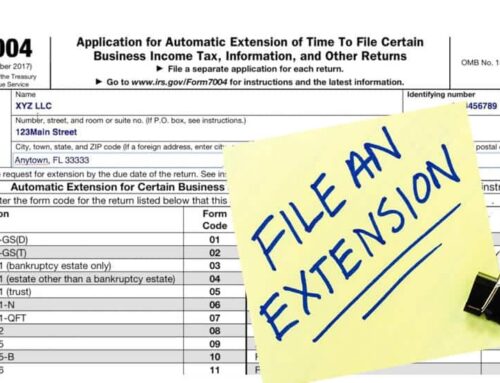It’s that time of the year again, tax time! It seems like the rules change every year. It seems that way because, well, basically, that is what happens. It may be your very first time doing taxes or your 100th. Either way, having a solid plan and understanding the rules for the current year are crucial in making the process as painless as possible. Appropriate planning and advisement may also allow you to reduce your tax obligations. Here are a few things to get you started down the right path for your 2023 tax year.
Deductions
Deductions are the items the IRS gives you to reduce your total income when filing your taxes. In some instances, this applies at the state level as well. There are two basic ways to claim deductions on your tax return.
Standard Deduction – This is a number that is calculated at the federal level and can be used in a few different ways based on your household status. In recent years this number has been adjusted under specific changes at the federal level. In many cases, taking this deduction will be your best option. This amount will be deducted from your total income to reduce your tax liability. It also requires much less work from you to track all the potential expenses for itemizing.
Standard Deductions for the 2022 Filing Year
Single and married filing separately: $12,950
Head of Household: $19,400
Filing Jointly: $25,900
Itemized Deductions – The second method used to calculate your deductions is to itemize. You may have heard that this may be the best way to file your taxes if you own a home or work from home. The answer to that is it depends on the details of your situation. When you work with your accountant, they will help you to decide if this is the best approach for you. Under this method, you will total your allowed expenses to see if they are larger than the standard deduction. Here are a few samples of what you could deduct. There are limits applied to each of these, and they could change each year.
- Property Taxes
- Mortgage Interest
- Moving Expenses (if in Armed Forces)
- Medical Expenses
- Donations to Charity

Tax Tables and Taxes Due
Once you have reduced your income by either taking the standard deduction or itemizing everything you are allowed, you can determine the amount of tax due to the IRS. This is done by reviewing the annual tax tables released by the IRS. You will locate your income and filing status to determine your total due. You will then compare this number to the total amount of tax you paid. Your amount paid will likely be found on a W2 sent from your employer or by reviewing any estimates you made throughout the year if you are self-employed. Deducting your taxes paid from your taxes due is your tax liability for the year.
Credits
Credits differ from deductions in that they reduce the tax you may owe after taking your deductions. Tax credits reduce your tax bill dollar for dollar. They may even increase your refund if you are eligible for one, depending on which credit you are using. Each credit has a set of criteria you must meet to qualify for this. You can find these details on the IRS website that defines these rules. Here are a few types of credits you may be eligible for:
- Earned Income Tax Credit
- Child Tax Credit
- Lifetime Learning Credit
- Adoption Credit
- Energy Credits
Read the details of each credit carefully, as you must meet the criteria to receive it. If you are not sure, reach out to an accountant for verification. Claiming one of these credits without following the rules could result in an audit and repayment that would also have penalties and interest.
Filing Deadlines
April is a hectic time of year for accounting firms across the United States. People tend to put off things they don’t like doing, like taxes. Unfortunately, you will face penalties and interest charges if you do not get your taxes filed on time and owe money to the IRS. These can add up quickly, so meeting those deadlines is essential. This year the filing deadline is Tuesday, April 18, 2023. If you plan on doing your own taxes, the sooner you get started, the more time you will have to maximize your deductions and credits. It also gives you time to organize your documents to make the process easier.

Tax Professional Services
Paying someone to do your taxes is often a wise investment. Tax professionals, like those at Hayes Accounting, are just that, professionals! They know the details of the rules and how to maximize everything to keep your tax obligation down. The cost associated with having a professional do your taxes is often given back to you in the amount of your return or a decrease in taxes owed.
Contact us today to get your return going before the April 18th deadline.





